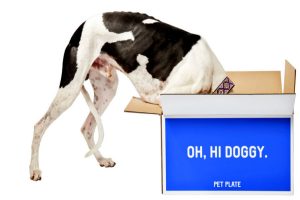A food allergy cannot be cured, but it can be controlled with a special diet and medication. Your dog must avoid the allergen when fed – then it is spared from symptoms.

Does your dog suffer from itching, rash or
indigestion? It could be a food allergy. At least if you have already ruled out other allergies or causes. However, together with the veterinarian, you can help your pet.
Coordinate therapy for food allergy with a veterinarian
With a so-called elimination diet, the veterinarian tries to alleviate the symptoms of your dog’s food allergy. First, you need to strictly list all of the food ingredients in the dog food and these your dog needs to avoid for the next six to ten weeks. In this way, the symptoms can calm down.
If your pet is doing well again, you can carefully consult with the veterinarian to check which food your pet is allergic to. Small quantities of a suspicious feed component are added to the bowl over a week. Try a different food the following week. As soon as the allergic symptoms show up again, you will know which food contains the allergen.
How a dog enjoys life despite a food allergy
Since the food allergy cannot be cured, the dog must strictly avoid the allergen. It is essential throughout the treatment, including the elimination diet, that your pet still eats a balanced and varied diet. Deficiency symptoms must not occur because certain nutrients are lacking. A food diary for your four-legged friend can help keep track of things.
The veterinarian can also prescribe medications that will relieve the food allergy symptoms. Make sure your dog is taking the pill correctly and regularly. Then he can lead an essentially every day, symptom-free life.








